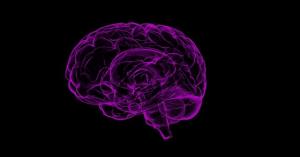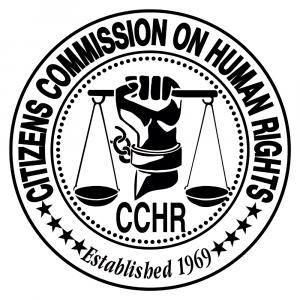
Researchers Say Psychiatrists Should Shape Patients’ Morality, But Psychiatrists’ Own Medical Ethics Are Questioned

Some 45 million Americans are currently taking antidepressants, largely on the basis of an idea about a chemical imbalance of the brain, which has never been proven.
Exposure of psychiatrists’ widespread promotion of misleading chemical imbalance theory which lacks scientific evidence, calls their moral values into question.
WASHINGTON, DC, US, September 13, 2022/EINPresswire.com/ -- Recently published research in the Journal of Medical Ethics argues that psychiatrists should use psychiatric interventions to develop and improve their patients’ morality. “To the extent that moral norm-breaking defines, causes, or is an unavoidable symptom of mental disorders, treatments that support moral growth will be helpful,” writes lead author Doug McConnell, PhD, Research Fellow at the Oxford Uehiro Centre for Practical Ethics in the U.K. [1]
However, this view, which rests on an assumption that psychiatrists are good judges of morality and are themselves ethical, comes at a time when psychiatrists are under attack for having taught and promoted for decades a theory of the cause of mental disorders that has no scientific basis, which misled millions of patients into taking psychoactive drugs.
A comprehensive review, published in Molecular Psychiatry in July, found no scientific evidence to support the psychiatric theory that depression is due to a chemical imbalance in the brain, especially a low level of the brain chemical serotonin. The chemical imbalance theory has been widely promoted since the late 1980s by the psychiatric and pharmaceutical industries as the rationale for prescribing the newer generation antidepressants, so-called selective serotonin reuptake inhibitors (SSRIs) and serotonin-norepinephrine reuptake inhibitors (SNRIs). [2]
“The serotonin theory of depression has been one of the most influential and extensively researched biological theories of the origins of depression,” wrote lead author Joanna Moncrieff, MD, a psychiatrist and academic researcher at University College London. “Our study shows that this view is not supported by scientific evidence. It also calls into question the basis for the use of antidepressants.” Some 45 million Americans are currently taking antidepressants, largely on the basis of that theory, including 2.2 million children and teens under the age of 18.
Moncrieff also noted that patients being told depression is caused by a chemical imbalance in the brain led them to believe they have less control over their moods, need to take an antidepressant to correct the imbalance, “and may discourage people from discontinuing treatment, potentially leading to lifelong dependence on these drugs.”
Prescribed antidepressants by psychiatrists to correct an imbalance that doesn’t exist, many patients were harmed by the debilitating side effects of the drugs, including sexual problems, insomnia, agitation, psychosis, deepening depression, mania, suicidal thoughts and actions, and violence. A systematic review of clinical trials in which non-depressed adults were given antidepressants found that the drugs doubled their risk of suicidality and violence. [3]
Those who want to stop taking antidepressants face withdrawal symptoms that can be severe and long-lasting. One study found that 56% of people who attempt to come off antidepressants experience withdrawal symptoms, with nearly half (46%) of them rating those symptoms as “severe” – so severe, that many are unable to stop taking the drugs. [4]
In addition to the risk of all these side effects when taking or discontinuing antidepressants, a number of studies have concluded that the drugs are largely ineffective. One recent study concluded there is no definitive evidence that antidepressants are any more effective than placebos. [5]
Many psychiatrists have tried to distance themselves from the now-discredited assertion of a chemical imbalance in the brain, claiming the theory was never taken seriously by the psychiatric profession. But this claim is false.
Researchers investigated that claim by examining the coverage of the serotonin theory of depression in a sample of highly cited and influential academic literature starting in 1990, when the serotonin theory was first popularized. They found that the theory of a chemical imbalance causing depression was, in fact, endorsed by the psychiatric professional and academic community, and to claim otherwise is false. [6]
Disregarding the lack of any scientific proof of the chemical imbalance assertion, the American Psychiatric Association’s (APA) website still misleadingly suggests, “Differences in certain chemicals in the brain may contribute to symptoms of depression,” and states, “For this reason, antidepressants might be prescribed to help modify one’s brain chemistry.” [7]
The question of psychiatrists’ morality extends to their disingenuous attempt to operate on a biomedical model – the idea that chemical imbalances in the brain or other biological abnormalities cause mental disorders and can be corrected with drugs – in order to gain acceptance for psychiatry as a legitimate branch of medicine. This meant subjectively giving patients “diagnoses” of invented “mental disorders,” which are no more than collections of behaviors given a medical-sounding label and voted into the APA’s Diagnostic and Statistical Manual of Mental Disorders.
Psychiatrist Thomas Insel, M.D., former director of the National Institute of Mental Health, admitted in his blog on the NIMH website in 2013 that there is no objective, scientific validity for psychiatry’s “diagnoses” of mental disorders. This means there is no science behind, and no quality control possible for, the subjective psychiatric assessments that result in psychiatrists labeling and stigmatizing patients with “mental disorders” and prescribing psychoactive drugs.
Despite psychiatrists’ claims of having effective treatments for mental health issues, psychiatrists are facing what one researcher called the “triple crisis in psychiatry”: no validity to psychiatric “diagnoses,” no understanding of the cause or development of mental disorders, and a lack of research and development of new psychiatric drugs – replacements for existing drugs that research has found are both largely ineffective and carry substantial risks of harm when taking or discontinuing the drugs.
In response to this triple crisis, psychiatrists are now turning their attention to other risky, unproven procedures to bail out their profession: electroshock, which has never been required by the FDA to be proven either safe or effective and is known to cause brain damage, and hallucinogens, with which psychiatrists put emotionally unstable patients on psychedelic trips.
These are psychiatry’s unsurprising answers to its identity crisis – putting human lives and sanity at risk of the unpredictable and dangerous effects of psychedelic drugs and electricity shot through the brain, with psychiatrists unable to explain how either is supposed to work to benefit patients, in a reckless attempt to salvage their failed profession. As a mental health industry watchdog, the Citizens Commission on Human Rights (CCHR) continues to warn the public about these risks.
CCHR was co-founded in 1969 by members of the Church of Scientology and the late psychiatrist and humanitarian Thomas Szasz, M.D., recognized by many academics as modern psychiatry’s most authoritative critic, to eradicate abuses and restore human rights and dignity to the field of mental health. CCHR has been instrumental in obtaining 228 laws that protect mental health patients against psychiatric abuses and violations of human rights worldwide.
The CCHR National Affairs Office in Washington, DC, has advocated for mental health rights at the state and federal level. The CCHR traveling exhibit, which has toured 441 major cities worldwide and educated over 800,000 people on the history to the present day of abusive and racist psychiatric practices, has been displayed in Washington, DC, at the Congressional Black Caucus Foundation Annual Legislative Conference and other locations.
[1] https://jme.bmj.com/content/early/2022/08/18/jme-2022-108442
[2] https://www.nature.com/articles/s41380-022-01661-0.pdf
[3] https://pubmed.ncbi.nlm.nih.gov/27729596
[4] https://www.sciencedirect.com/science/article/pii/S0306460318308347?via%25Dihub
[5] https://bmjopen.bmj.com/content/9/6/e024886
[6] https://sciencedirect.com/science/article/pii/S266656032200038X
[7] https://psychiatry.org/patients-families/depression/what-is-depression
Anne Goedeke
Citizens Commission on Human Rights, National Affairs Office
+1 202-349-9267
email us here
Visit us on social media:
Facebook
CCHR: What's Wrong with Psychiatry? A Psychiatrist Explains...
EIN Presswire does not exercise editorial control over third-party content provided, uploaded, published, or distributed by users of EIN Presswire. We are a distributor, not a publisher, of 3rd party content. Such content may contain the views, opinions, statements, offers, and other material of the respective users, suppliers, participants, or authors.




